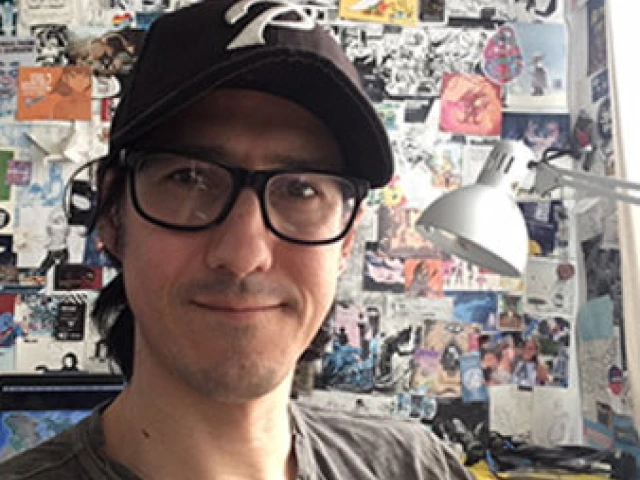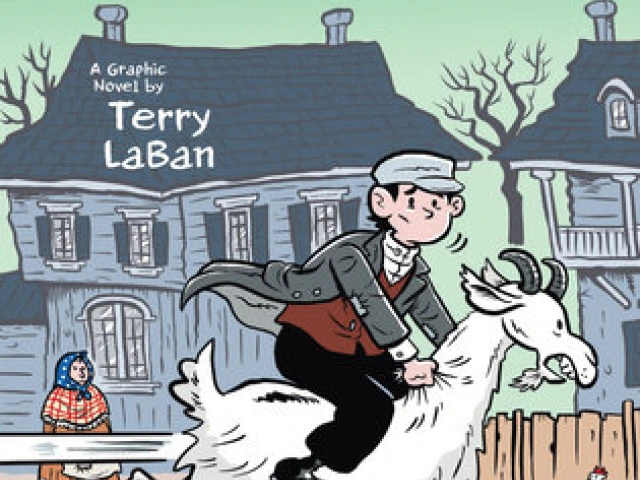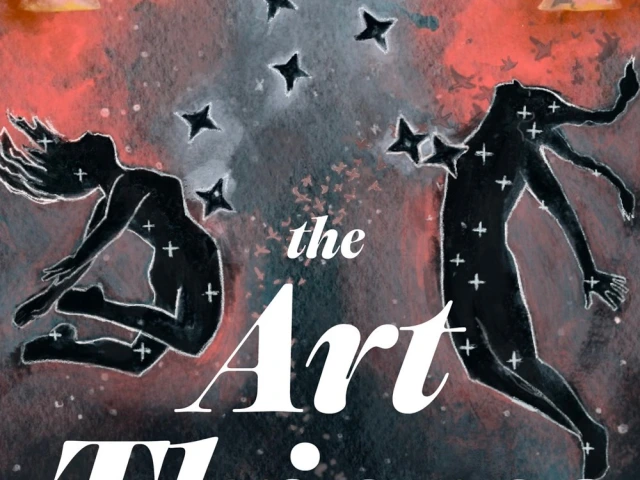Authors' Corner: Jonah Winter
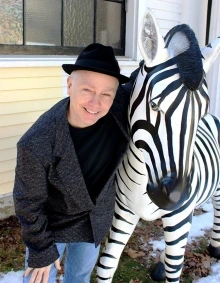
Jonah Winter is an award-winning author of more than 40 picture books who currently resides in Pennsylvania, a state in which more than 450 books were banned in 2022, including Winter's biography, Sonia Sotomayor: A Judge Grows in the Bronx (2009). Book-banning is in the news these days, and another book by Winter made the news in Spring 2023 when it was banned in Duval County, Florida--his biography, Roberto Clemente: Pride of the Pittsburgh Pirates (2002). Speaking of Florida (second only to Texas in book banning), Winter's biography Hillary (2016) was banned from two schools in Miami where he was scheduled to visit on his book tour in 2016. At each school, the principals prevented him from presenting his book.
A Timely Text on Censorship
Considering these experiences, it's no wonder that Winter, whose books frequently focus on social justice, turned his lens to censorship in his new book, Banned Book (2023). His timely book confronts a reality wherein a few power-hungry people possess the power to decide for others what books children are allowed to read. At the center of this text is redaction--the technique used in censoring documents--which Jonah uses as a novel device to hook young readers and reinforce the point of the book by blacking out any "worrisome" word that censors deem inappropriate for children and young adults. This of course leaves the reader with little to read, which is the point.
In a recent conversation with Jonah, he shared about the process of writing this book. Jonah explained various incarnations of his newest book by acknowledging several years of work on the manuscript. "Originally, the story included publishing companies and editors as participants in the whole process of censorship. It portrayed scenes of angry parents protesting outside a publishing company--and the frightened editors who, hiding under their desks, eventually gave in to protestors' demands by ceasing publication of the book. It ultimately ended with a good old-fashioned book-burning staged by protestors. This was not an unrealistic story."
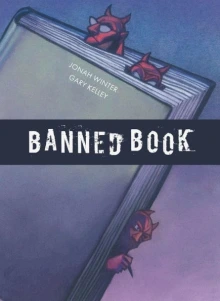
Ultimately, Winter chose a narrative more closely mirroring tensions between some parents, school boards, librarians and teachers occurring across many states. Somewhere along the line in the revision process, he "decided that it would be fun to include commentary from the censors at the bottom of each page that has redacted text--as if this, the book that you are holding in your hands, had to be approved by the censors in charge of ensuring that nothing 'problematic' makes it into print."
Winter consciously made a decision not to reveal the subject of the book being banned. He believes his final version "covers both sides of the censorship spectrum from the right-wing book-banners to the left-wing cancellers… I'm happy I stuck with the revision process and finally arrived at the most relevant and thorough story I could tell about censorship in our current world."
Expect to spend time pouring over each page and pondering the redacted text. Illustrator Gary Kelley added layers of meaning through an array of images, including classrooms with bewildered children, faces of worried or angry adults, a valiant librarian, and even a garbage truck.
Childhood Experiences Impacting Jonah's Writing Focus
Growing up in an all-white enclave in Dallas, Texas during the 1960s and 70s, Jonah bore witness to racism in his environment, where racist jokes and epithets were a regular part of daily life. As the son of two liberal parents (his father was an art professor at the local university, SMU), Jonah felt indignation even in childhood, resulting from the bigotry he saw and heard, which is a big part of what led him to focus many of his children’s books on racism and racial injustice.
Almost from the beginning of his writing career, as seen in his second book focused on the Negro Baseball Leagues, Winter demonstrated one of his oft-stated goals of teaching children about the racist history of the U.S., as well as the lesser-known history of amazing figures not usually taught in textbooks. "Whenever possible, I want to use my platform as a children’s book author to teach kids about important history, and hopefully make a positive difference in their lives."
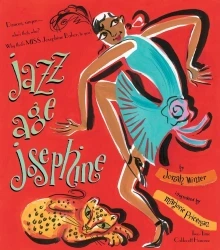
Over the past 25 years Winter has created an array of books mainly for elementary readers. His books display his fascination with a wide array of topics, from U.S. history to baseball to the environment to artists like Diego Rivera and Frida Kahlo and musicians like Dizzy Gillespie, Jelly Roll Morton and Josephine Baker.
Teachers who choose to examine the more difficult aspects of U.S. history can explore many of Winter's books with students, including those centered around Supreme Court justices--Thurgood Marshall, Ruth Bader Ginsburg, and Sonia Sotomayor.
Jonah's love of baseball comes through clearly in his trove of baseball books on figures like Roberto Clemente, Willie Mays, Sandy Koufax, and Joe DiMaggio, to name a few. Readers might also want more information on how one Florida school banned but then reinstated his Roberto Clemente biography.
Writing Roots
Jonah reflected on his school history by revealing these memories. "I was an okay student in grade school and an average one in high school. I can't remember much about middle school except for the fact that I got bullied every day and flunked art--the only subject other than Logic 101 (in college) that I ever flunked. I hated school."
Before his school years, Winter recalled how he began writing poems. He described his initial writing process involving his father. "I dictated poems to my dad, and he’d write them down. I got two of them published when I was 6 years old. Then I abandoned poetry for art for several years, only coming back to poetry in high school. I never stopped writing poems from that point on."
A range of awards bestowed on various Winter books include a Jane Addams award for Lillian's Right to Vote (2015), also a Kirkus Prize finalist. The following year, Winter's book, My Name Is James Madison Hemings (2016), earned a NY Times Editor's Choice award.
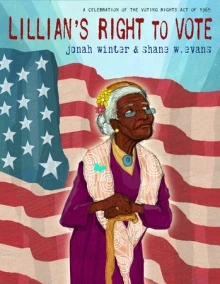
Returning for a moment to Jonah's three Supreme Court justice books, he revealed his lengthy writing process, specifically for the Sotomayor and Ginsburg books. Considering the lack of full-length adult books on either figure, he mainly read magazines and newspaper articles. "But for Thurgood (2019), I read various books on Marshall for my research. During that process, I decided to focus on just his activism as a civil rights lawyer, trailblazing a path through the Supreme Court with his landmark cases that helped pave the way for the advances of the Civil Rights era of the 50s and 60s." He concluded the book with Thurgood's ascension to the Supreme Court. "In Thurgood Marshall's case, there was just too much information, too many stories I could relay, to tell his entire story in a 32-page picture book. And even after deciding to limit myself to his years as a civil rights lawyer, I eliminated and eliminated some more, maintaining only the pieces of information absolutely essential to this story." Jonah admits the heavy challenge of writing this biography.
The Power of a Reader's Question
Jonah reflected on his time spent with children during school visits in this way. "I love doing school visits. Children are such a breath of fresh air, and they breathe life into me and what I do. They’re honest and funny and they have about the best BS detectors money can't buy. I love their enthusiasm. And children's book librarians are my heroes, the unsung heroes of the world right now."
One inquisitive elementary reader's question Winter recalled focused on failures. The boy asked him about the number of stories he had written that had been rejected and not yet published. Of course, Jonah answered, "A lot! Oh, I've got a lot of failures." His favorite unpublished text is "Franz Kafka's Miserable Childhood," which he continues to send out even now. He's lost track of how many times it's been rejected. He explained further. "I thought that it was interesting that a child wanted to know if a successful adult, a published author who is visiting their school, had any failures." Winter wants kids to know that not everything a professional writer creates is going to get published. During this author visit, Jonah recalls how he went on to discuss that even the most successful batters in baseball "fail two out of every three times--so, most of their at-bats… are failures!"
Jonah finds looking at writing this way to be incredibly useful. "So much of what we do is experiment, try new things, play, explore. That's where and how the magic happens."
Authors’ Corner is a periodic profile featured on our blog where authors discuss their writing process and the importance of school visits. Worlds of Words frequently hosts these authors for events in the collection. To find out when we are hosting an author, check out our events page. Journey through Worlds of Words during our open reading hours: Monday-Friday, 9 a.m. to 5 p.m. and Saturday, 9 a.m. to 1 p.m.

